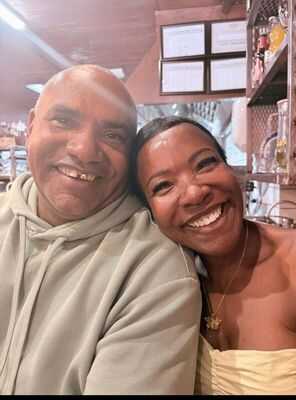
Stroke aftercare for UK victims is "in a dire state" after a charity warned an alarming two thirds of survivors fail to get proper, structured support. Every day in Britain, 240 people wake up to the impact of stroke unable to move, see, speak, or even swallow and it's the leading cause of complex adult disability - and the UK's fourth cause of death.
In 2023 the Daily Express launched our 'Let Stroke Patients Thrive' campaign, for better aftercare and access to miracle procedure thrombectomy - speedily removing the clot so some patients can return home that same day. But on World Stroke Day the Stroke Association warns that thousands of victims are being failed as they battle to recover - with the number of patients receiving vital six-month reviews at the lowest rate in over half a decade.
Many stroke survivors need long-term support to recover, regularly assessed after being discharged from hospital, including a consultation after six months to discuss their ongoing needs.
Yet the latest data from the Sentinel Stroke National Audit Programme (SSNAP) for April 2024 - March 2025 found that only 35.1 percent of patients had this vital six-month review - the lowest in six years.
Juliet Bouverie OBE, CEO of the Stroke Association, said: "Stroke changes a person's life in an instant with far-reaching repercussions for many.
"It requires treatments including physiotherapy, speech and language therapy, and mental health support.
"The fact that 65 percent of stroke survivors don't get this is truly shocking and demonstrates the dire state stroke treatment and ongoing care is in.
"As around 90 percent of strokes are preventable, we also need the public to know how to reduce their risk of stroke by exercising regularly, eating healthily, not smoking, and monitoring alcohol intake.
"This all helps regulate blood pressure, a major risk factor for stroke. Stroke must be prioritised by Governments and the NHS from prevention to diagnosis, treatment and long-term recovery.
"Only then will stroke patients get the treatment they need, whenever they need it, so the increasing number of UK stroke survivors can live mentally and physically well."
The latest SSNAP data looking at patient recovery at these six-month reviews also found 64 percent of stroke survivors had ongoing problems doing their usual activities, 47 percent had anxiety or depression, and 62 percent struggled with mobility.
This highlights the need for quality support in the right quantity to meet the needs of each person.
In addition, clot-busting thrombectomy - which can greatly reduce the chances of a stroke survivor being left with a disability - is reaching less than half of all eligible patients.
Although the number of people having this procedure is slowly increasing, it continues to be monopolised by an unfair postcode lottery which limits when and where this lifechanging and lifesaving treatment is available for stroke patients.
The Stroke Association said they are concerned that thousands of stroke survivors fail to get the help they need to mentally and physically recover from stroke, as set out by the National Institute for Health and Care Excellence (NICE) and the national clinical guidelines for stroke.
The charity says that one of the reasons for this is the stretched NHS workforce and huge number of vacancies across multidisciplinary teams which support stroke survivors.

It hopes the Government's upcoming NHS Workforce Plan, currently under consultation, will help ensure stroke survivors to have bespoke and consistent support throughout their recovery.
Patsy Hyman, 58, from Hounslow, west London, had a stroke in May due to a previously undiagnosed hole in her heart, called a Patent Foramen Ovale (PFO).
After having problems with her vision, she went to A&E where an MRI confirmed her diagnosis. She spent a week on the stroke ward before being discharged home.
Fortunately, she was left with minimal physical side-effects, but she had crippling fatigue and poor mental health.
Initially, Patsy was supported by the Stroke Association's NHS-commissioned services but, when funding for this service ceased, Patsy was left without any ongoing support, including no six-month review.
Patsy said: "Even though I'm one of the lucky ones, recovery doesn't stop when you leave hospital. In fact, that's when you really need someone to turn to and, without consistent follow-up, people can feel lost.
"You can look fine on the outside, but there's so much more going on underneath. Stroke isn't a one-size-fits-all situation. Every stroke survivor is different, and they should be supported for as long as they need it.
"I'm so grateful for the help I received from the Stroke Association, but now that the service has been shut down,
I can't help feeling robbed of the future support I could have had. It's really sad to think others won't get it, either.
"The right support helps you rebuild your life, and that's something every stroke survivor should have."
A UK survey of 2,000 Britons, and 1,000 stroke survivors, found 64 percent didn't know that stroke is the UK's leading cause of complex adult disability.
In fact, nearly two thirds (60 percent) of stroke survivors are left with a disability - which is more so than neurological conditions such as Parkinson's, arthritis or some types of cancer.
In addition, 27 percent of those surveyed believe more people die from stroke than survive it. Today, more people are having strokes and surviving them 6 and many of the UK's current 1.4 million stroke survivors are living with lifechanging disabilities.
The survey also found that only 19 percent thought stroke survivors need long-term rehabilitation and recovery support with 25 percent thinking it took six months or less to recover.
Conversely, around 30 percent of stroke survivors said their recovery took longer than expected or that the process was worse than they thought, and they didn't recover as much as they had hoped.
A Department of Health and Social Care spokesperson said: "It is unacceptable that so many stroke survivors are not receiving the support they need with their recovery.
"We're committed to improving stroke prevention, treatment, and recovery for all stroke survivors, including by setting new national standards for how cardiovascular disease care should be delivered across the NHS.
"Through our 10 Year Health Plan, we are shifting the focus of healthcare out of the hospital and into the community, to help stroke survivors get vital support sooner.
"We are also delivering a £29 billion investment to fund the reform needed to turn the NHS around, and tackling waiting lists, with an extra 5.2 million appointments already delivered."
* The Stroke Association supports stroke survivors and their families by phone, at home, and in the community. Find out more at www.stroke.org.uk

You may also like

Cyclone Montha impacts Bihar, IMD issues heavy rainfall alert for several districts

IND vs AUS: Jasprit Bumrah Is Suryakumar Yadav's Primary Weapon Against Australia in T20Is

Haryana CM Nayab Singh Saini leaves for Patna to address rallies in poll-bound Bihar

RRB JE 2025: Detailed notice issued for recruitment to 2570 posts of Junior Engineer in Railways, registration from October 31..

Opposition Parties in Haryana Criticize Government's Treatment of Farmers Amid Fertilizer Shortage







